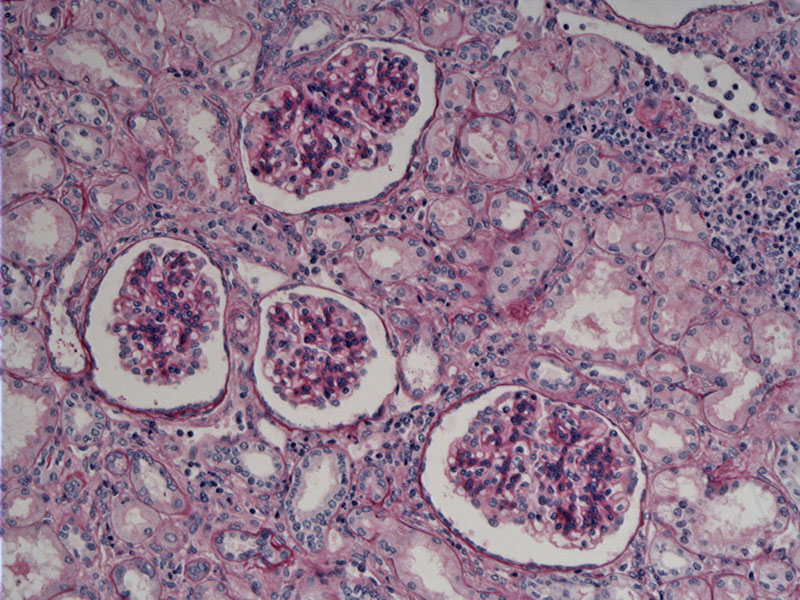System: Genitourinary: Kidney: Medical: Congenital Nephrotic Syndrome

System: Genitourinary: Kidney: Medical: Congenital Nephrotic Syndrome



all glomeruli appear similarly altered by a prominence of the mesangium Image
Renal biopsy does not reveal the etiology as the genetic defects may cause several types of glomerular lesions, such as mesangial expansion, FSGS, and minimal change. Image
Infants present with heavy proteinuria, hypoproteinemia, and edema starting soon after birth. The
majority of cases are related to genetic defects in the components of the glomerular filtration barrier, particularly nephrin and podocin.
Mutations in NPHS1 gene the "Finnish type" which is characterized by premature birth, with a birth weight ranging between 1,500 and 3,500 gm, and a placenta weight of over 25% of the newborn weight in practically all cases. Amniotic fluid may be meconium stained, but the infants do not usually have respiratory problems, and there are no extrarenal malformations. Proteinuria usually begins in utero and the newborns kidneys are enlarged
Mutations in the NPHS2 gene, which codes for the podocyte protein podocin, are not only a common cause of childhood steroid resistant nephrotic syndrome, but are also important in congenital nephrotic syndrome. The kidneys often show FSGS and variable degrees of proteinuria.
Mutations in WT1 cause several types of syndromes (Denys-Drash, Frasier, and WAGR syndromes) manifesting in childhood as well as isolated kidney disease, with nephrotic syndrome.
Steroids and other immunosuppressive drugs are not helpful. Initial therapy includes controlling edema and possible uremia, preventing and treat complications such as infections and thromboses,
and providing optimal nutrition. Transplantation offers the only cure.
The prognosis following transplantation is quite good and similar to those obtained in other etiologies. Patient survival at 5 years is over 90% and graft survival
over 80%. However, chronic allograft nephropathy is a serious problem, who often require retransplantation when they develop into young adults.